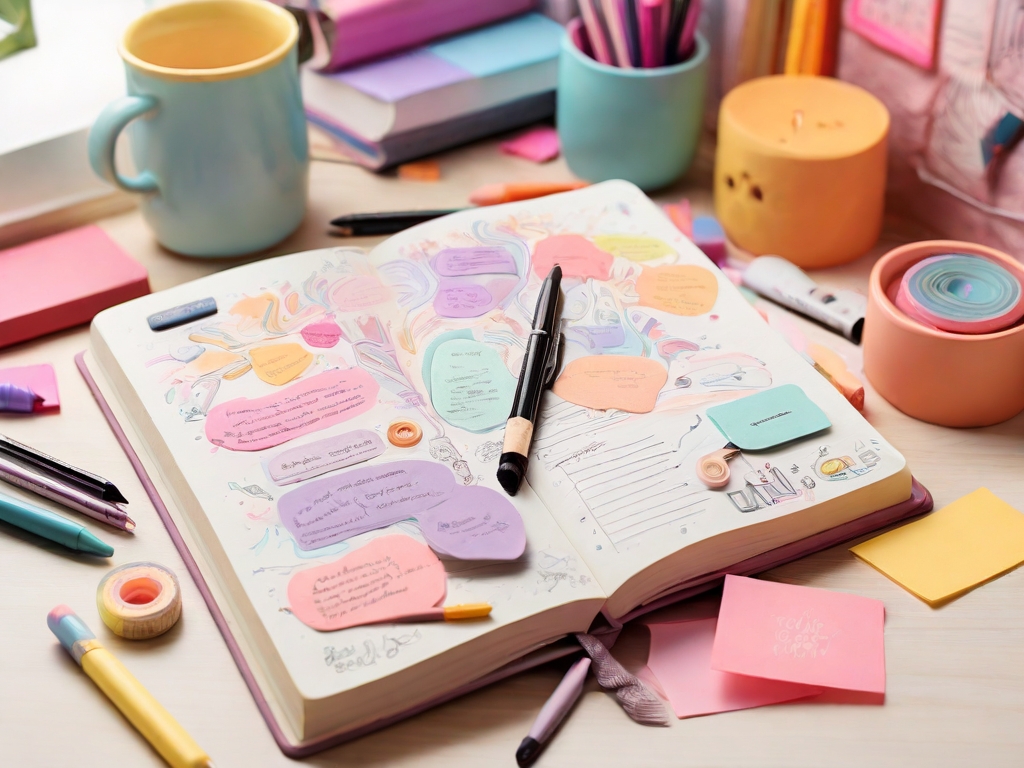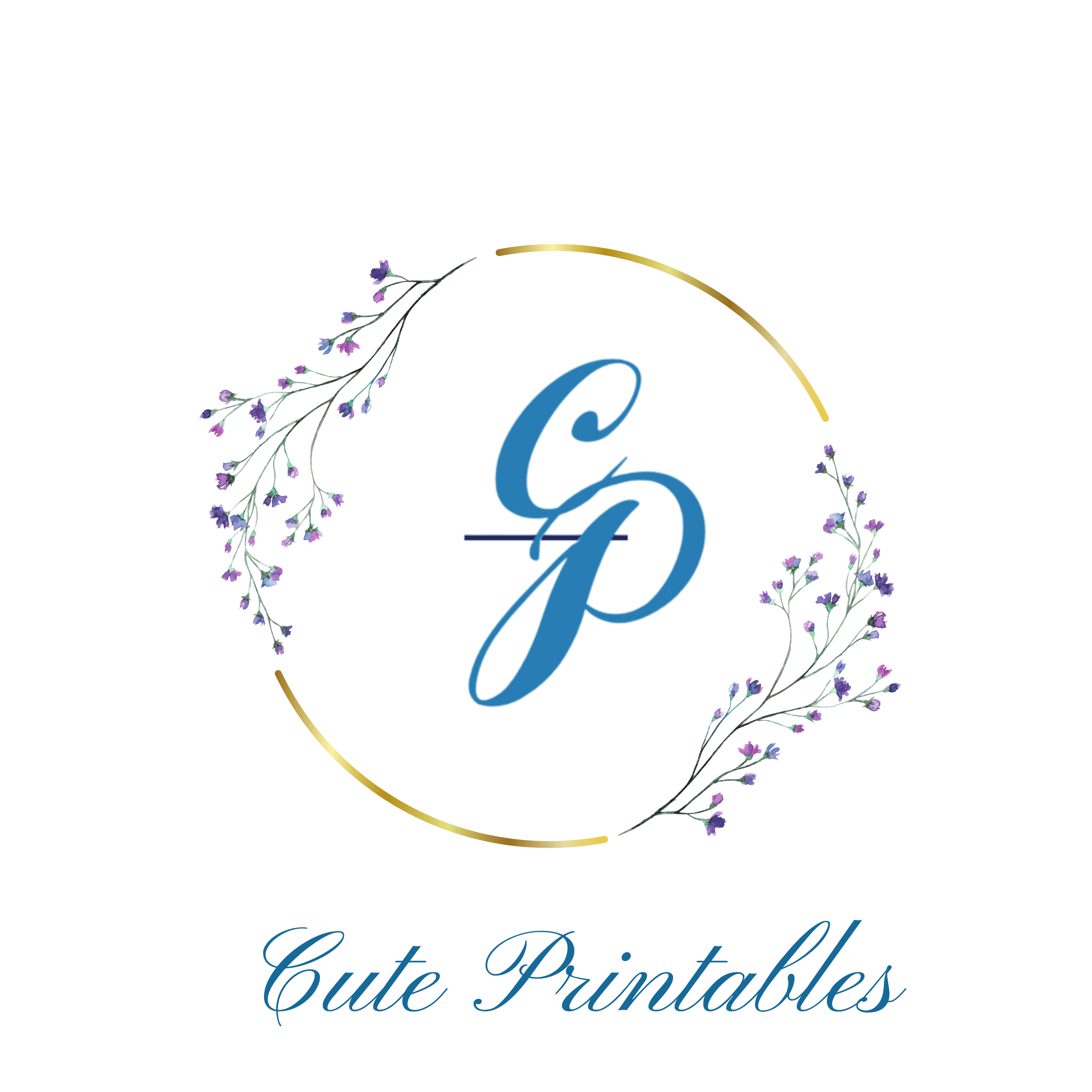Have you ever stared at a blank page, wanting to start journaling but not sure where to begin? I know the feeling—I’ve been there too. In a world that’s always buzzing, taking a moment to write can feel like a breath of fresh air. Whether I’m looking to clear my mind, get creative, or just check in with myself, journaling has become a go-to practice for me. But let’s be real—it can feel a bit overwhelming at first.
That’s why I’m here to help! In this article, I’m going to break down the whole journaling thing into simple, doable steps. we’ll explore different styles and techniques so you can find what works best for you. Whether you’re hoping to keep a daily diary, unleash your creative side, or just jot down your thoughts, I’ve got some tips that’ll make the process a lot less intimidating and a lot more fun. So, grab your favorite pen, get comfy, and let’s dive into the wonderful world of journaling together!

Start small with daily writing.
I’ve found that establishing a daily writing routine can work wonders for organizing my thoughts and expressing ideas more clearly. When I first committed to writing a little each day, I was amazed at how quickly it became a habit that sparked my creativity and opened up new ways to express myself. The key, I discovered, was starting small—just a few minutes of writing every day made it feel totally doable, not overwhelming at all. And the best part? As I kept at it, I noticed my confidence growing, and I was able to push my boundaries bit by bit.
But here’s the thing: daily writing isn’t just about improving your skills—it’s also a powerful way to reflect and grow personally. There’s something about putting pen to paper that helps me explore my emotions, sort through my thoughts, and capture my experiences. Over time, this practice has led to some real “aha” moments, giving me insights I might have missed otherwise. It’s like the more I write, the more clarity and inspiration I find. That’s why I’ve come to see my daily writing as not just a routine, but a rewarding and enriching part of my life.
Related Read: 3 Best Gratitude Journals for beginners
Choose a comfortable journaling space.

To make journaling more effective, it’s important to set up a space that helps you focus and get creative. A good journaling spot should be quiet, free from distractions, and suited to what you like.
It could be a cozy corner in a room, a bright spot by a window, or even somewhere outside where you feel relaxed. Adding comfortable seating, nice decor, or a few personal items can make the space feel more inviting and special. This way, your journaling spot becomes a perfect place for self-expression and reflection.
Besides making sure the space is physically comfortable, it’s also important to create a mental link between the space and journaling.
Setting up a routine where you use the same spot for writing can help signal to your mind that it’s time to focus and get creative. By regularly using this space, you can build a habit that encourages deeper thinking and emotional exploration, making your journaling experience more fulfilling.
Set a specific writing time.
Setting a specific time for journaling can really boost its effectiveness. By sticking to a regular schedule, people make it a habit and stay consistent. This routine helps beat procrastination and gets the mind ready for thoughtful writing and creativity during those set times. Whether it’s first thing in the morning, during a lunch break, or right before bed, having a set time for journaling can turn it into a cherished part of the day, making it easier to keep up with the practice.
Setting a specific time for writing can really help you stick to your journaling routine. Treating it like a scheduled appointment makes it easier to fit into your day, even with all your other responsibilities. By making this time a regular part of your day, you’ll get more into the habit and find that you’re more engaged with your thoughts and feelings. Over time, this consistent practice not only builds the habit but also helps you grow personally, making your journaling experience more rewarding.
Use prompts to spark creativity.

Using prompts in journaling can really boost creativity and help with self-discovery. When you have specific questions or themes to write about, it’s easier to dig into your thoughts and feelings. Prompts are especially handy when you’re stuck or feeling unmotivated, as they give you a clear direction and spark new ideas. Whether you’re thinking about a personal challenge or planning for the future, prompts can help you explore thoughts and perspectives you might not have considered otherwise.
Using prompts can be a great way to explore new ideas and push beyond your usual way of thinking. They encourage you to step outside your comfort zone and discover things you might not have thought about before. This can make journaling more interesting and help you grow personally. As you try out different prompts, you might find new connections between your thoughts and experiences, which can give you a deeper understanding of yourself and the world around you.
Keep your journal private and safe.
Keeping your journal private is really important for making it a safe space for personal reflection and growth. When you know your entries are confidential, you can be more honest and open, which helps you understand yourself better. This privacy lets you express your true thoughts and feelings without worrying about judgment or outside influence. Whether you use a physical journal that you can keep tucked away or a digital one with strong privacy settings, making sure your journaling remains private is crucial for getting the most out of it.
Keeping your journal safe is important to protect your personal thoughts and reflections. For digital journals, you might want to use a password to keep them secure. For handwritten journals, a locked box can do the trick. Doing this not only keeps nosy people out but also shows how much you value your writing journey. By making sure your journal is safe, you’re committing to your own self-discovery and growth, which makes the whole journaling experience even more meaningful.
Write freely without judgment or pressure
Writing freely in a journal means accepting that it’s okay if things aren’t perfect. Journaling isn’t about creating a flawless story but about capturing your honest, unfiltered thoughts and feelings.
This approach can be really therapeutic—it helps release emotions and process thoughts. By focusing on personal expression instead of worrying about how others might judge it, you can build a journaling habit that boosts your mental well-being and supports your personal growth.
The journey of self-discovery through journaling becomes even more rewarding when you let go of the pressure to be perfect.
Writing freely, without worrying about judgment or pressure, is key to a great journaling experience. When people let themselves write just for the sake of it, they really start to explore their true thoughts and feelings.
This kind of honest writing can spark creativity and bring out ideas that might stay hidden otherwise. Whether you’re working through big emotions or just noting down daily events, letting go of self-criticism helps you have a real conversation with yourself, leading to clearer understanding and more insight.
Experiment with different journaling styles.
Trying out different journaling styles can really make the journaling experience more enjoyable and personal. There are various methods like bullet journaling, free writing, gratitude lists, and art journaling, each with its own benefits.
For example, bullet journaling is great if you like organization and structure, while free writing is perfect for those who want a more open and free-flowing way to get their thoughts down.
By experimenting with these different styles, you can find what works best for you and adjust your journaling practice to fit your mood and needs.
Exploring different methods can be a great way to grow personally and adapt the practice to changing needs and experiences, making the connection with one’s thoughts and feelings more meaningful.
Review past entries for reflection.
Reflecting on past journal entries can serve as a powerful tool for personal growth and self-awareness. By revisiting previous thoughts and feelings, one can identify patterns in their behavior, emotional responses, and decision-making processes.
Looking back at old journal entries can be a great way to grow personally and understand yourself better. By reviewing past thoughts and feelings, you can spot patterns in how you behave, react emotionally, and make decisions.
This reflection often shows how you’ve changed and what you’ve learned along the way. Not only does this help you see your progress, but it also gives you insights that can guide you in making wiser choices in the future.
Reflecting on past journal entries helps uncover feelings and experiences that might have been missed before. This practice can deepen self-awareness and highlight areas where growth is still needed.
Looking back on previous entries not only makes journaling more meaningful but also creates a sense of continuity in one’s life story, showing how self-reflection can help navigate life’s ups and downs.
Stay consistent to develop habit.
Sticking to a regular journaling routine is key to making it a lasting habit. Whether it’s writing every day or just once a week, having a set schedule helps turn journaling into a natural part of life.
The more consistent the practice, the easier it becomes to keep up with it. Over time, this regular writing helps build a stronger connection to your thoughts and feelings, making journaling a more meaningful and effective practice.
Sticking to a regular journaling routine helps build discipline and highlights the value of taking care of oneself. As people notice the benefits—like clearer emotions, boosted creativity, and better self-awareness—they’re more likely to keep journaling even with a busy schedule.
In the end, making journaling a regular habit supports ongoing personal growth, turning it into a valuable tool for self-reflection and development.
Celebrate progress and personal growth.
It’s important to recognize and appreciate the progress made through journaling. Each entry, no matter what it’s about, shows how far you’ve come.
Looking back at past entries lets you see how your thoughts and feelings have changed over time, which can be really motivating. Noticing this growth helps reinforce why journaling is valuable and encourages you to keep exploring and reflecting.
Celebrating small wins in journaling can really boost motivation and keep you committed. Whether it’s sticking with your writing habit for a week or figuring out something that’s been on your mind, it’s important to take a moment to recognize these achievements.
Celebrating these little victories helps build a sense of accomplishment and keeps you moving forward, making your personal growth journey feel more rewarding. When you combine the reflective nature of journaling with celebrating your progress, it creates a strong mix that encourages continuous self-improvement and fulfillment.
Conclusion
starting a journaling habit can truly change how you reflect, create, and feel. By following some easy tips—like setting aside regular time, picking a comfortable writing tool, and being flexible with your style—you can build a journaling routine that fits your life.
The secret to successful journaling isn’t about being perfect but about being consistent and true to yourself. Enjoy the process of discovering more about yourself through writing, and you might find that journaling becomes a valuable part of your personal growth and mindfulness journey.
FAQ
What are some effective strategies for overcoming the initial resistance to starting a journaling habit?
To overcome initial resistance to journaling, start small by dedicating just five minutes a day. Choose a comfortable medium, like a notebook or digital app, to make it accessible. Set a specific time, such as morning or bedtime, to establish a routine. Focus on prompts or themes to ease writer’s block, and remember that there are no rules—just write freely. Celebrate small milestones to build motivation, and consider sharing insights with a friend for accountability. Finally, remind yourself of the benefits, such as self-reflection and stress relief, to reinforce your commitment.
How can beginners choose the right journal format (digital vs. paper) that suits their personal preferences and lifestyle?
Beginners can choose between digital and paper journals by considering their lifestyle and preferences. If convenience and portability are priorities, digital journals on apps or devices may be ideal. They often offer features like searchability and cloud storage.
Conversely, if one enjoys tactile experiences and creativity, a paper journal might be preferable for writing, drawing, or doodling.
Additionally, assess your routine: Are you often on the go or do you prefer reflection time at home? Experimenting with both formats can also help in making the best choice. Ultimately, select what feels most comfortable and enjoyable for you.
What are some simple prompts or topics that newbies can use to get started with journaling and maintain consistency?
- Daily Gratitude: Write three things you’re thankful for each day.
- Mood Check: Describe your current feelings and why.
- Goal Setting: Outline short-term and long-term goals.
- Favorite Quotes: Reflect on a quote that resonates with you.
- Lessons Learned: Note a lesson from your day.
- Nature Observations: Describe something interesting in nature you noticed.
- Weekly Reflections: Summarize the week’s highlights and challenges.
- Dream Journal: Record your dreams and thoughts about them.
- Creative Writing Prompts: Start with “Once upon a time…”
- Self-Care Check-In: List ways you took care of yourself recently.
How can setting specific goals for journaling help beginners stay motivated and track their progress over time?
Setting specific goals for journaling helps beginners stay motivated by providing clear objectives to work towards, making the practice feel more purposeful.
Goals can include daily entries, reflections on emotions, or tracking personal growth. This structure encourages consistency and transforms journaling into a rewarding habit.
Additionally, having specific targets allows individuals to track their progress over time, making it easier to recognize growth, celebrate achievements, and identify patterns in thoughts or behaviors.
Ultimately, goal-setting enhances the journaling experience, fostering a sense of accomplishment and encouraging continued engagement.
What are the benefits of establishing a daily journaling routine, and how can beginners integrate it into their existing schedules?
Establishing a daily journaling routine enhances self-reflection, emotional clarity, and creativity. It can reduce stress and improve mental well-being.
Beginners can integrate journaling by setting aside just 5-10 minutes each day, choosing a specific time (e.g., morning or before bed), and keeping a notebook or app handy.
Start with prompts or gratitude lists to ease into the practice. Consistency is key; aim for a regular schedule, and don’t worry about perfection—focus on expressing thoughts freely. Over time, journaling can become a fulfilling part of your daily routine.
Happy Journaling!
